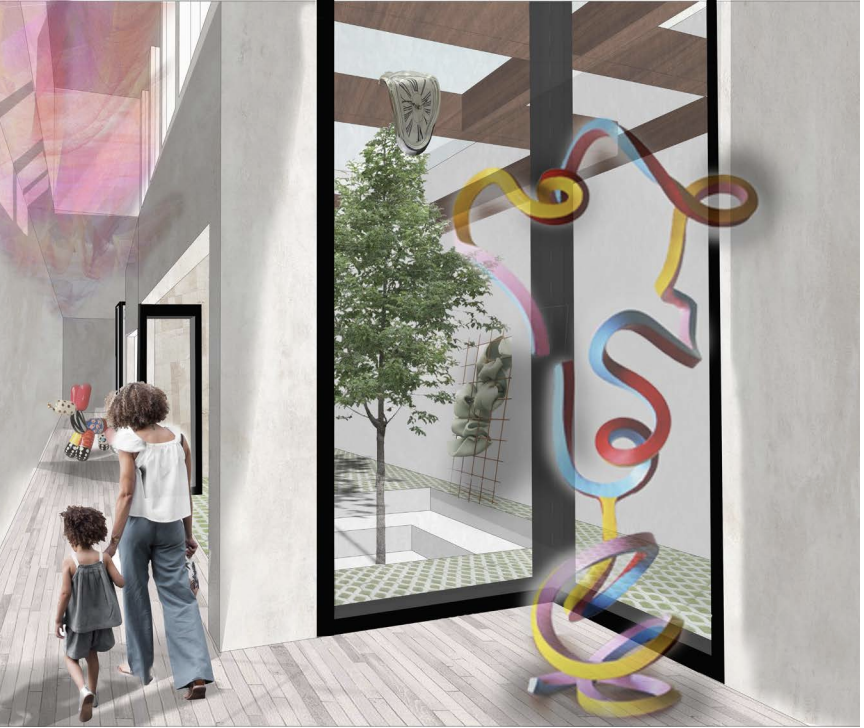
Five architecture students have been selected as recipients of the 2023 AIA Virginia Prize. The jury named University of Virginia’s Lydia Cartwright as the competition’s overall winner of the $2,000 prize. Alyssa Stephenson, Hampton University; Brandon Meinders, University of Virginia; Brynn McClatchy, Virginia Tech; and Twishi Shah, Washington-Alexandria Architecture Center, were recognized as the winners from each school and received $300 awards.
This year, University of Virginia professors Phoebe Crisman and Maria Gonzalez Aranguren authored the brief for the design challenge. The 2023 competition – which took place Feb. 10-13 – challenged students to design a house for two artists that included their workshop and a public program in the form of an exhibition space and an educational space. Each school’s faculty reviewed the submissions and sent up to 10 finalists to Richmond for final judging. The jury convened April 10 to determine this year’s overall winners.
The jurors were Forrest Frazier, AIA, chair; Azadeh Rashidi, AIA; and Everald Colas, AIA. Frazier is the founding director of Two Street Studio’s Richmond office. Rashidi is a project manager at Tod Williams Billie Tsien Architects | Partners in New York. Colas, an award-winning Haitian American architect, educator, and storyteller, is the founder of Storyn Studio for Architecture in St. Petersburg, Fla.
While the number of people primarily working from home has tripled since 2019, historically the workplace and the home were not separate locations until the industrial age. As the current digitalization of many professions and the Covid-19 pandemic has led to the acceptance of teleworking as a viable option, residences must adapt to accommodate the working program again. The Virginia Prize competitors explored this live/work social reality as they designed a short-term residence for artists staying between three months and one year, located at a specific site along the Downtown Mall in Charlottesville, Va.
The students were asked to design living spaces for two artists with both individual private and shared areas, including sleeping areas, kitchen, bathroom(s), living area(s), and personal storage. There should be outside spaces for working and living, and the home’s working spaces must accommodate the potential range of art manifestations, from large paintings to sculpture to digital art. And the residence must have exhibition spaces open to the public, as well as educational space available for workshops and lectures open to the Charlottesville community.
Jurors said that overall winner (pictured above) Lydia Cartwright “seemed to understand the history of the downtown mall, extending it into the site.” The design’s “incorporation of art reinforced the program concept with a legible and believable story,” they said.
The jury noted that Hampton University’s winner Alyssa Stephenson’s design featured a “nice distribution of public vs. private program elements,” while the Virginia Tech winner, Brynn McClatchy, submitted a “beautiful collection of old-school drawings imbued with originality.”
Brandon Meinders, the University of Virginia winner, was praised by the jury for the “graphic clarity and sequence of construction.” They noted that Twishi Shah, of the Washington-Alexandria Architecture Center, presented particularly appealing curtain roof and curtain wall sections, and a design with “thoughtful life and spirit.”
